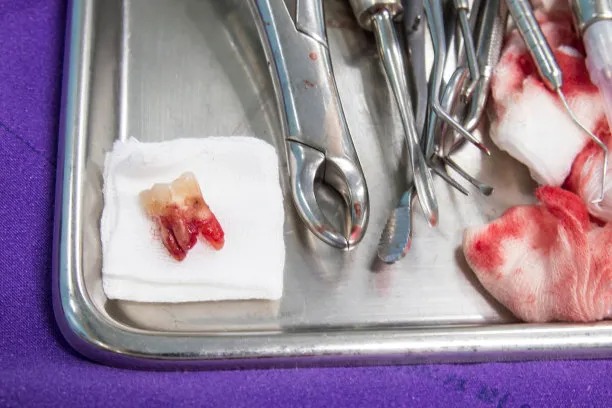The Importance of Dental Care and What Happens When You Need to Extract a Tooth
Summary: Dental care is a critical aspect of overall health that often gets overlooked. From routine cleanings to emergency extractions, maintaining oral hygiene can prevent a host of problems, including tooth decay and gum disease. Understanding the importance of dental check-ups and what to expect during an extraction can help to alleviate anxiety and ensure the best outcomes. This article will delve into the significance of dental care, the factors leading to tooth extraction, the extraction process itself, and the aftercare required to promote healing and maintain oral health.
1. The Significance of Regular Dental Care

Regular dental care is essential for maintaining oral health and preventing serious complications. Dental check-ups every six months allow for early diagnosis of various dental issues, ensuring that problems are addressed before they escalate. During these visits, dentists not only clean teeth but also check for cavities, gum disease, and other potential concerns.
Moreover, consistent dental care contributes to overall health. Poor oral hygiene has been linked to systemic conditions such as heart disease, diabetes, and respiratory infections. By maintaining good dental hygiene through regular visits, individuals can significantly reduce their risk of developing these associated health problems.
Additionally, dental care promotes mental well-being. A healthy smile can enhance self-esteem and confidence, preventing social anxiety related to oral health issues. In this way, dental care serves not only physical health but also emotional and psychological wellness.
2. Reasons for Tooth Extraction
Although the goal of dental care is to preserve natural teeth, there are instances when extraction becomes necessary. One of the primary reasons for extraction is tooth decay that extends beyond repair. Severe cavities can compromise the structural integrity of a tooth, making extraction the safest option to prevent further complications.
Another common reason for tooth extraction is periodontal disease, which affects the gums and bone supporting the teeth. Advanced stages of periodontal disease can lead to tooth mobility, necessitating removal to safeguard surrounding teeth and gum tissues.
Impacted teeth, particularly wisdom teeth, often require extraction due to lack of space for proper eruption. Impacted teeth can lead to pain, infection, and even damage to adjacent teeth. Early consultation with a dental professional can help determine the necessity of extraction in such cases.
3. The Tooth Extraction Process
Understanding the tooth extraction process can significantly ease anxiety for those facing this procedure. Initially, dentists conduct a thorough examination, often using X-rays to assess the tooth’s position and shape. This information helps to plan the safest extraction method.
During the procedure, local anesthesia is administered to numb the area around the tooth, ensuring that the patient experiences minimal discomfort. In more complex cases, such as surgical extractions, sedation may be offered to make the patient feel more comfortable.
Once the area is numbed, the dentist gently loosens the tooth using specialized instruments and removes it carefully. After the extraction, the dentist will provide instructions on post-operative care, which is crucial for proper healing. Understanding these steps can aid in reducing pre-procedure anxiety and fear associated with dental extractions.
4. Aftercare Post Tooth Extraction
Post-extraction care is vital for ensuring a smooth recovery. Patients are typically advised to bite down on gauze pads for about 30 minutes to an hour to control bleeding. It is essential to follow the dentists aftercare instructions to minimize the risk of complications, such as dry socket or infection.
During the initial healing phase, patients should adhere to a soft-food diet to allow the extraction site to heal without undue stress. Hydration is also important, but it should be done carefully to avoid using straws, which can dislodge the healing clot. Light rinsing with saltwater can help keep the mouth clean.
Regular follow-ups with the dentist are essential to monitor the recovery process and address any concerns. By following proper aftercare protocols, patients can facilitate faster healing and maintain their overall oral health post-extraction.
Summary:
In conclusion, dental care plays a critical role in ensuring not only good oral health but overall well-being. Regular visits can help prevent issues that may lead to the need for tooth extractions. When the necessity for extraction arises, understanding the reasons, process, and aftercare can make a significant difference in the experience and recovery. By prioritizing dental care, individuals can achieve healthier and happier smiles.
This article is compiled by Vickong Dental and the content is for reference only



